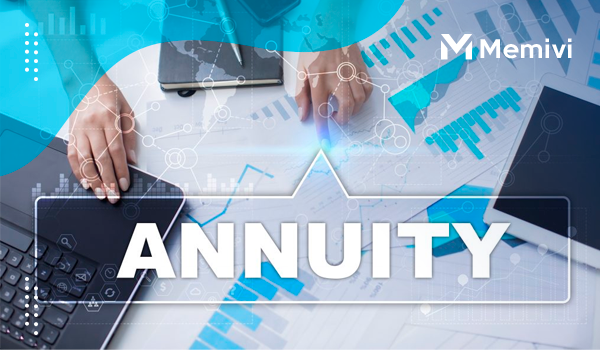
While the flexibility and independence of gig work can be very appealing, it can also leave many feeling uncertain about their financial future. Without the traditional stability of a full-time job, it can be challenging to know how to plan for the future, save for retirement, and manage income effectively. In this post, we’ll explore some key strategies for mastering the gig economy and securing your financial future.
From setting financial goals and creating a budget to establishing multiple streams of income and investing wisely, we’ll share tips and best practices that you can implement to thrive as a gig worker and build a strong financial foundation for the future.
Introduction to the gig economy
The gig economy has revolutionized the way people work and earn a living. In this digital age, more and more individuals are embracing the flexibility and freedom that the gig economy offers.
But what exactly is the gig economy, and what are its benefits?
Put simply, the gig economy refers to a labor market characterized by short-term contracts or freelance work as opposed to traditional permanent employment. It encompasses a wide range of industries, from ride-sharing and food delivery services to freelance writing, graphic design, and consulting.
One of the key benefits of the gig economy is the freedom it provides. Gone are the days of being tied to a 9-to-5 desk job. With gig work, individuals have the flexibility to choose when, where, and how much they work. This level of autonomy allows people to pursue their passions, spend more time with family, and create a work-life balance that suits their needs.
Another advantage of the gig economy is the potential for increased earning. By taking on multiple gigs or projects simultaneously, individuals have the opportunity to diversify their income streams and increase their overall earnings. This can be especially beneficial for those looking to supplement their current income or save for future financial goals.
Additionally, the gig economy promotes entrepreneurship and empowers individuals to be their own bosses. Freelancers and gig workers have the freedom to set their own rates, choose their clients, and determine the scope of their work. This level of control and independence can be incredibly rewarding, both personally and financially.
However, it’s important to note that the gig economy also comes with its own set of challenges and uncertainties. Without the stability of a traditional job, gig workers must navigate issues such as fluctuating income, lack of employment benefits, and the need to constantly hustle for new opportunities.
Understanding the challenges and risks of the gig economy
One of the most significant challenges is the lack of stability and predictability. Unlike traditional jobs with a steady income, gig workers often face uncertainty in terms of their workload and earnings. This unpredictability can make it difficult to plan for the future and secure their financial stability.
Another challenge is the absence of employee benefits commonly associated with traditional employment, such as health insurance, retirement plans, and paid time off. Gig workers are responsible for their own insurance coverage and must set aside funds for retirement, vacation, and sick days. This added financial burden requires careful budgeting and planning to ensure long-term financial security.
Furthermore, gig workers face the risk of inconsistent client demand. With no guaranteed clients or contracts, there may be periods of low income or even gaps in work. This requires gig workers to continuously market themselves, build a strong network, and actively seek new opportunities to maintain a steady stream of income.
Additionally, gig workers are responsible for managing their own taxes. Unlike traditional employees who have taxes automatically deducted from their paychecks, freelancers and independent contractors must navigate the complexities of self-employment taxes. This includes estimating and setting aside funds for taxes, keeping track of business expenses, and filing tax returns correctly and on time.
To thrive in the gig economy, it is crucial to understand and prepare for these challenges and risks. Developing a financial plan, building an emergency fund, and investing in professional development can help mitigate some of the uncertainties. It’s also important to stay informed about changes in labor laws and regulations that may impact gig workers’ rights and protections.
Diversifying your income streams as a gig worker
As a gig worker, one of the key strategies to secure your financial future is by diversifying your income streams. Relying solely on one gig platform or client can leave you vulnerable to sudden changes or fluctuations in demand. By diversifying your income, you can create a more stable and sustainable financial foundation.
There are several ways to diversify your income streams as a gig worker. Firstly, consider expanding your services or skills. Assess your existing skill set and identify areas where you can expand or learn new skills that are in demand. This could involve taking online courses, attending workshops, or networking with professionals in your industry. By offering a wider range of services, you can attract a larger client base and increase your earning potential.
Another way to diversify your income as a gig worker is by leveraging multiple gig platforms. Instead of relying on just one platform, sign up for several reputable platforms that align with your skills and interests. This way, you can access a broader range of opportunities and increase your chances of securing gigs consistently.
Building a strong personal brand and online presence
Building a strong personal brand and online presence is crucial in today’s gig economy. With so many individuals offering similar services or skills, it’s essential to stand out and differentiate yourself from the competition.
Start by defining your personal brand – what sets you apart, your unique value proposition, and your target audience. This will serve as the foundation for all your branding efforts. Consider your strengths, expertise, and passions, and craft a compelling story that resonates with potential clients or employers.
Next, establish an online presence that reflects your personal brand. Create a professional website or portfolio that showcases your skills, experience, and previous work. Use high-quality visuals, engaging content, and client testimonials to build credibility and trust.
Utilize social media platforms strategically to amplify your brand message and connect with your target audience. Choose platforms that align with your industry and audience preferences. Regularly update your profiles with relevant content, share insights and expertise, engage with your audience, and build relationships with influencers and thought leaders in your field.
Balancing work and personal life in the gig economy

Finding a balance between work and personal life is crucial in the gig economy. With the flexibility and freedom that comes with being a gig worker, it can be easy to blur the lines between work and personal time. However, neglecting your personal life can lead to burnout and negatively impact your overall well-being.
One strategy for achieving this balance is to establish clear boundaries. Set designated working hours and stick to them as much as possible. This not only helps you manage your time effectively but also allows you to communicate these boundaries to clients or employers. By doing so, you are signaling that you value your personal time and are committed to maintaining a healthy work-life balance.
Another key strategy is to prioritize self-care. Taking care of your physical and mental health is essential for long-term success in the gig economy. Incorporate activities such as exercise, meditation, or hobbies into your routine to recharge and rejuvenate. Remember, a well-rested and balanced individual is more likely to perform at their best and deliver high-quality work.
Final Thoughts
As the gig economy continues to grow, it is crucial to equip yourself with the right strategies to succeed in this dynamic landscape. By implementing the key strategies we discussed, such as diversifying your income streams, building a strong professional network, and leveraging technology, you can navigate the gig economy with confidence and secure your financial future. Remember, your success in the gig economy is within your control, and we wish you the best of luck in your journey towards financial stability and fulfillment.


 Unlocking Financial Freedom: Converting a Living Annuity and RA into a Life Annuity <p class='sec-title' style='line-height: normal; font-weight: normal;font-size: 16px !important; text-align: left;margin-top: 8px;margin-bottom: 0px !important;'> Retirement is an important milestone in life, and it's essential to plan accordingly for financial stability. Learn more. </p>
Unlocking Financial Freedom: Converting a Living Annuity and RA into a Life Annuity <p class='sec-title' style='line-height: normal; font-weight: normal;font-size: 16px !important; text-align: left;margin-top: 8px;margin-bottom: 0px !important;'> Retirement is an important milestone in life, and it's essential to plan accordingly for financial stability. Learn more. </p>  Retirement Bliss: Making the Right Choices for a Fulfilling Future <p class='sec-title' style='line-height: normal; font-weight: normal;font-size: 16px !important; text-align: left;margin-top: 8px;margin-bottom: 0px !important;'> How do you ensure that you make the right choices that will lead to a fulfilling and happy retirement? Learn more. </p>
Retirement Bliss: Making the Right Choices for a Fulfilling Future <p class='sec-title' style='line-height: normal; font-weight: normal;font-size: 16px !important; text-align: left;margin-top: 8px;margin-bottom: 0px !important;'> How do you ensure that you make the right choices that will lead to a fulfilling and happy retirement? Learn more. </p>  Reevaluating Beneficiaries: Can a Company Amend Living Annuity Funds? <p class='sec-title' style='line-height: normal; font-weight: normal;font-size: 16px !important; text-align: left;margin-top: 8px;margin-bottom: 0px !important;'> Living annuity funds are a popular choice for many individuals who are looking to supplement their retirement income. Learn more. </p>
Reevaluating Beneficiaries: Can a Company Amend Living Annuity Funds? <p class='sec-title' style='line-height: normal; font-weight: normal;font-size: 16px !important; text-align: left;margin-top: 8px;margin-bottom: 0px !important;'> Living annuity funds are a popular choice for many individuals who are looking to supplement their retirement income. Learn more. </p>